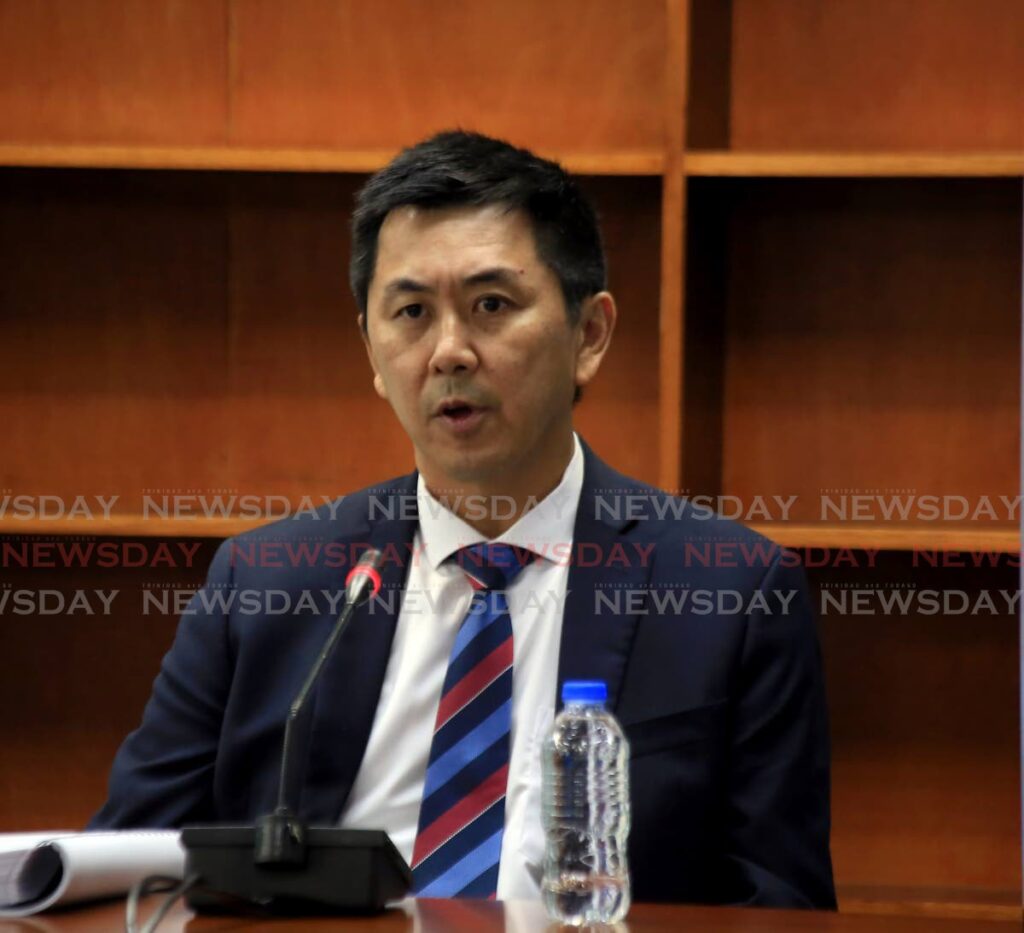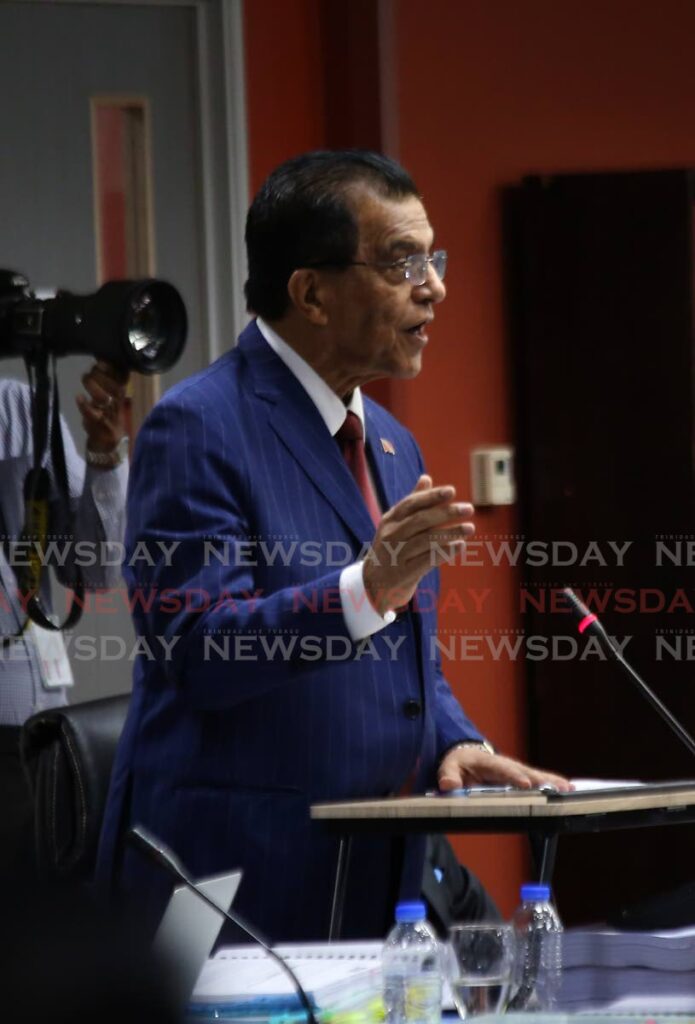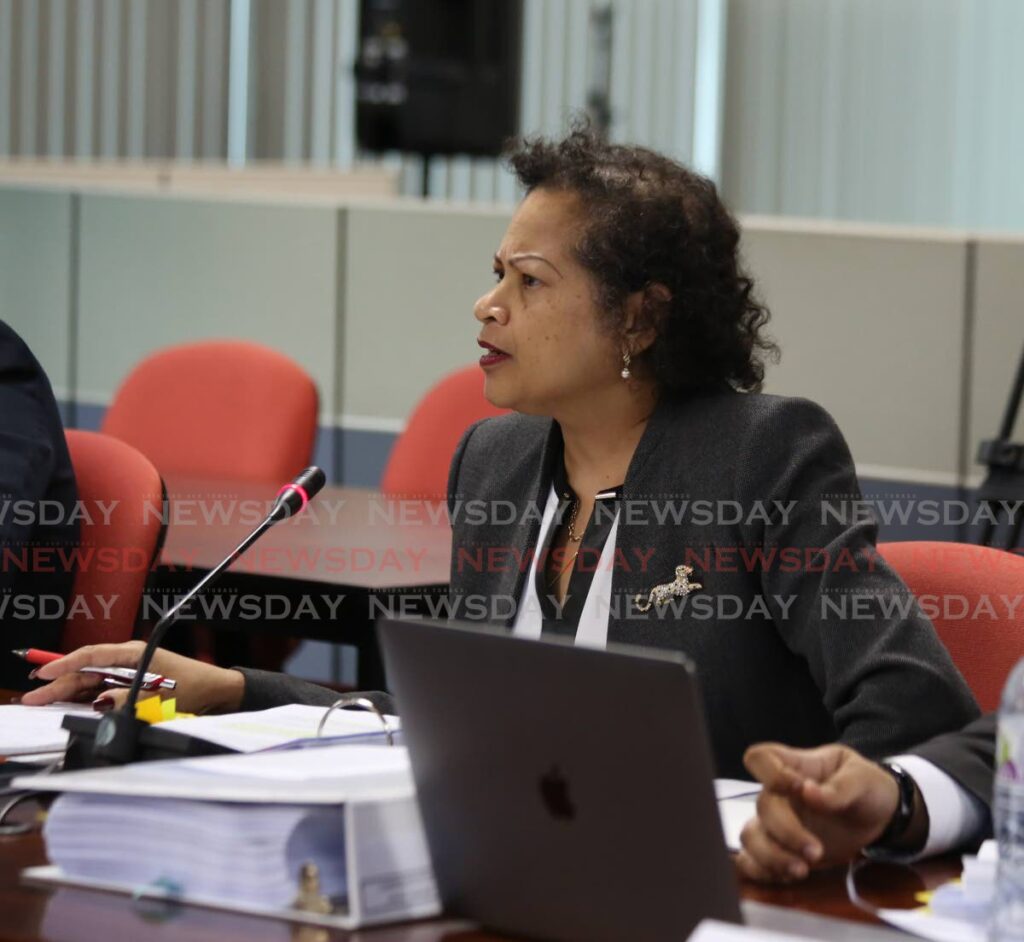Engineer describes efforts to save divers – CHAOTIC RESCUE ATTEMPT

WHILE friends and relatives of the four men trapped in an undersea oil pipeline begged to try to rescue them, Paria Fuel Trading Company instead first sought to find out conditions in the pipeline and to use approved divers, amid fears of more lives being put at risk.
This was the testimony on Tuesday from Michael Wei, technical and maintenance manager at Paria.
Divers Fyzal Kurban, Kazim Ali Jr, Rishi Nagassar and Yusuf Henry died in the tragedy, while Christopher Boodram was the sole survivor.
Wei spoke on Thursday at the Commission of Enquiry (CoE) into the February 25 tragedy at Paria's berth 6 at Pointe-a-Pierre, held at the International Waterfront Centre, Port of Spain, chaired by Jerome Lynch, KC, with Ramesh Maharaj, SC, as CoE counsel and Gilbert Peterson, SC, as Paria counsel.

Wei said amid rescue plans were fears of the occurrence a second Delta P – a vortex of water caused by a "differential pressure" in waters, believed to have sucked the five man into the pipeline.
Attorney Ronnie Bissessar, assistant counsel to the CoE, read Wei's witness statement, which concluded the removal of plugs had caused a powerful suction which pulled the men into the pipeline. Bissessar read that after Boodram's emergence from the pipeline, Paria had in turn sent into the pipeline an undersea camera and then a device called a crawler, to ascertain conditions. But these devices met an obstruction.
Neither the Coast Guard nor the diving companies contacted by Paria could be persuaded to enter the pipe, Bissessar read aloud.
DELAY IN SPEAKING WITH BOODRAM
Cutting the pipeline was deemed "too risky," he added. He said Paria focused on an open sea search for the men.
Maharaj said between Boodram's emergence at 6 pm and Paria questioning him at 10 pm, Paria had simply tried to get cameras into the pipeline. Wei replied that Paria was assisting LMCS with its rescue efforts.
Maharaj asked why it took so long for Paria to question Boodram (at 10 pm by phone), to try to ascertain conditions inside the pipeline.
Wei replied, "The first thing you do is ensure his life is saved. Or he'd not be heard today. He had bodily injuries and oil in his throat.
"The primary responsibility would have to be take care of him before questioning him on every condition inside the pipeline."
Wei said when Boodram went to hospital, covid19 restrictions curbed Paria contacting him, until a high-level phone call was made.

"The time to talk to him was limited. The doctor said there was not much time to talk to him."
Wei said Boodram also gave non-verbal information, by being disoriented, covered in oil and having injuries.
While Wei said Paria had called the Fire Service and Coast Guard, he did not know if a doctor was present on Boodram's emergence from the pipeline.
WEI POINTS TO LMSC
Maharaj asked if Boodram was given a hyperbaric chamber. Wei replied that Paria tried to assist. "That was LMCS' responsibility. Paria ,again, is not in the diving business."
He said someone from Paria's Health, Safety and Environment (HSE) unit went to hospital to contact Boodram, despite Maharaj's preference for someone to question Boodram in the ambulance.
Maharaj asked if Boodram could have supplied the details that Paria was seeking by sending cameras.
Wei said, "We didn't know Mr Boodram's condition. We were trying to stabilise Mr Boodram.
"The pipeline was dark and full of oil, so Boodram wouldn't give information."
Maharaj said Paria should have asked Boodram if he'd met any obstruction on his way out.
Wei said the phone call to Boodram was mainly to find out who was still alive in the pipeline. "We were informed he couldn't talk much longer."
Despite the four hours until Paria spoke to Boodram, Lynch said Wei said efforts were made.
Wei said Boodram told them the line contained oil, an air pocket and the men.
Maharaj said, "Based on what you've told me, Mr Boodram did not say there was any obstruction in the pipeline to prevent a diver going in?"
Wei replied, "Based on my statement here, he did not say that." Wei said a camera was obstructed by a scuba tank from going further into the pipeline.
Later, Wei said a second Delta P event could have arisen if an inflatable plug had remained inflated.
He said Paria's undersea camera showed berth 6 contained oil and water, while berth 5 had just oil, indicating the plug was sealing the line, but he had not expected any new Delta P.
Wei said so as not to put the lives of any rescuers at risk, a risk assessment was needed. "You need to know the conditions inside the line. You need to know if there were obstructions of hazards. To send someone into the line without knowing that would be reckless."
Wei said Paria did not have enough details to do a risk assessment, such as the amount of oil in the pipeline and how far inside it the trapped men were.
TOO RISKY TO SEND IN DIVER
He said LMCS was responsible to execute an emergency rescue plan. "They had lost their standby divers and had no one to assist." Paria was helping.
Wei said various diving experts told Paria it was too risky to send a rescue diver into the pipeline.
Maharaj asked when Paria decided not to send in anyone.
Lynch reckoned it had been an ongoing decision, without a time ever coming when Paria thought the risk was worth taking. Wei agreed.
Maharaj asked if he knew would-be-rescuer diver Michael Kurban had entered the pipeline. Wei replied, "There were reports, alleged reports. We cannot confirm he entered the pipeline. No confirmed reports. That's what he said." He did not try to contact Kurban and did not know if others at Paria had.
Wei did not know if other divers had also tried to enter the pipeline.
Maharaj asked if Paria told the Coast Guard (TTCG) to stop people entering the pipeline.
Wei replied, "Paria advised the Coast Guard to take control of the site because it was getting unruly. It is uncontrollable."
Maharaj pressed. Wei said, "Paria requested the Coast Guard to assist people from not getting into the pipeline."
Asked if divers were prepared to go into the pipeline to rescue the men, Wei said divers were on site, available to dive.
Maharaj asked if Wei held discussions with these divers. Wei replied no.

Comments
"Engineer describes efforts to save divers – CHAOTIC RESCUE ATTEMPT"